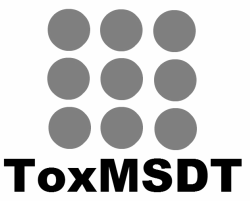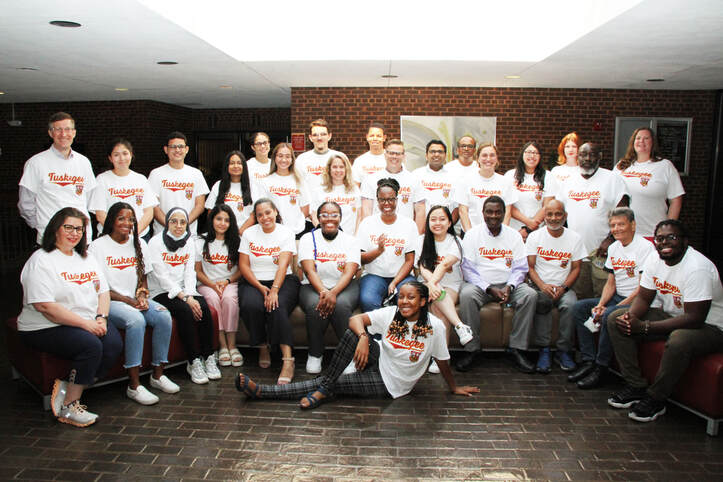|
|
Why ToxMSDT?
The Toxicology Mentoring and Skills Development Training Program is a 5-year program funded by the National Institutes of Health to provide career development opportunities for STEM undergraduates from diverse underserved backgrounds. Successful candidates will complete the 1 yr. program from their home institutions. It is mostly a virtual program accessible 24/7. The goal of the NIH funding is to support educational activities that complement and/or enhance the training of a diverse workforce to meet the nation’s biomedical, behavioral and clinical research needs. Toxicology is an essential component of the nation’s biomedical research enterprise. However, there is a critical lack of underrepresented populations in toxicology. |
The University of California, Davis, The Society of Toxicology, Iowa State University, Tuskegee University, the Ohio State University, and Michigan State University are collaborating to deliver this unique Toxicology Mentoring and Skills Development Training program targeting undergraduate underrepresented populations to build a pathway for entering graduate school and the toxicology workforce. Core concepts of the program are structured mentoring activities, skills development, and public outreach in toxicology.
Student Applications for 2022-23 are now closed.
Mentors application and requirements can be found here.
Student Applications for 2022-23 are now closed.
Mentors application and requirements can be found here.
Nuts and Bolts of ToxMSDT
This is a one-year toxicology mentoring and skills development training program. For the structured mentoring component, mentees are matched 1:1 with mentors primarily from industry, government, and nongovernmental organizations. Mentors are trained to provide a holistic mentoring experience to mentees. Mentees shadow mentors at their places of work. Participants will meet at the University of California Davis to open the program, attend the Society of Toxicology Annual Meeting in San Diego, California, and participate in capstone activities at Tuskegee University, Tuskegee, Alabama. There is travel, per diem, room and board support provided to all mentees and mentors for all program activities.
Skills development includes sessions at the inaugural workshop at University of California, Davis, completion of case study modules in toxicology, knowledge gained through job shadowing activities, and activities to enhance communication skills.
One of the challenges of recruiting undergraduates into toxicology graduate research programs is a lack of toxicology courses at the undergraduate level. Course content developed through this program is accessible to other undergraduate students, educators, and the interested public, which will increase the availability of an introduction to the discipline of toxicology and interest in toxicology careers.
Skills development includes sessions at the inaugural workshop at University of California, Davis, completion of case study modules in toxicology, knowledge gained through job shadowing activities, and activities to enhance communication skills.
One of the challenges of recruiting undergraduates into toxicology graduate research programs is a lack of toxicology courses at the undergraduate level. Course content developed through this program is accessible to other undergraduate students, educators, and the interested public, which will increase the availability of an introduction to the discipline of toxicology and interest in toxicology careers.







